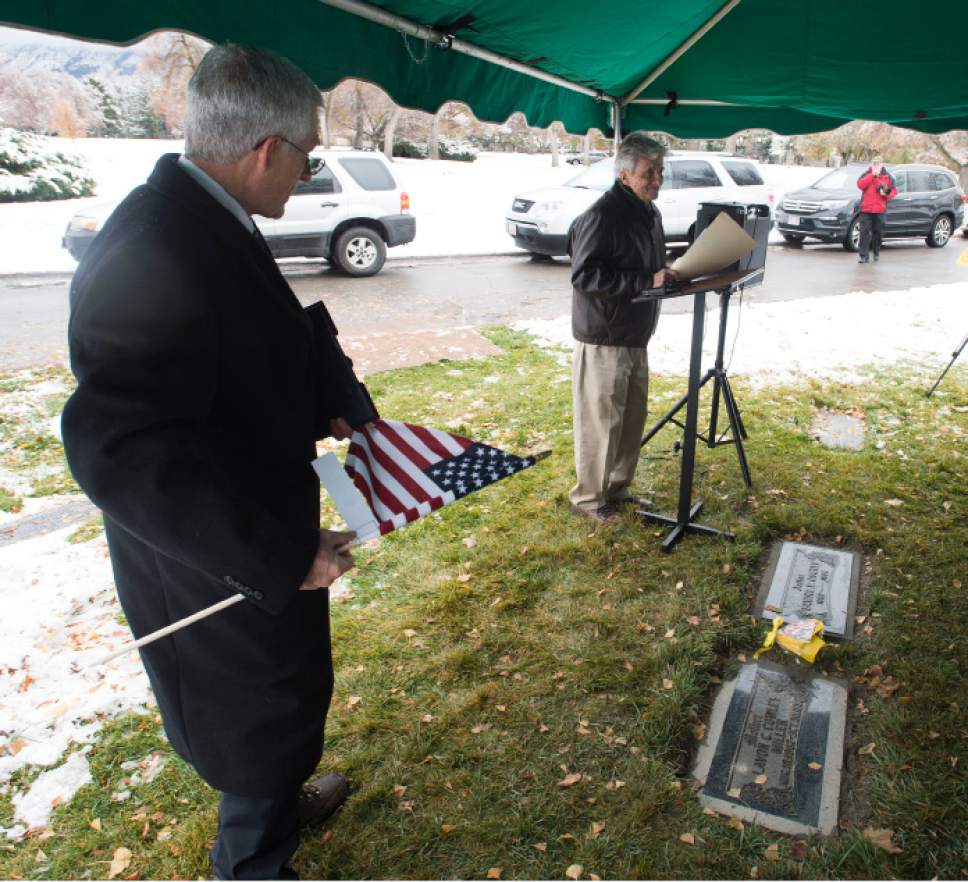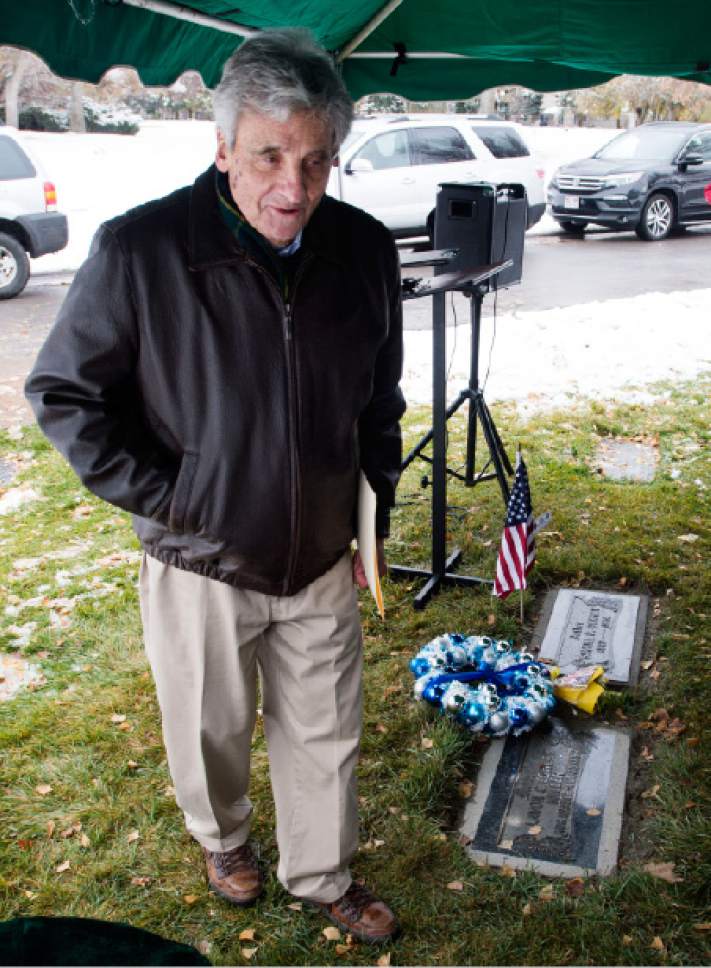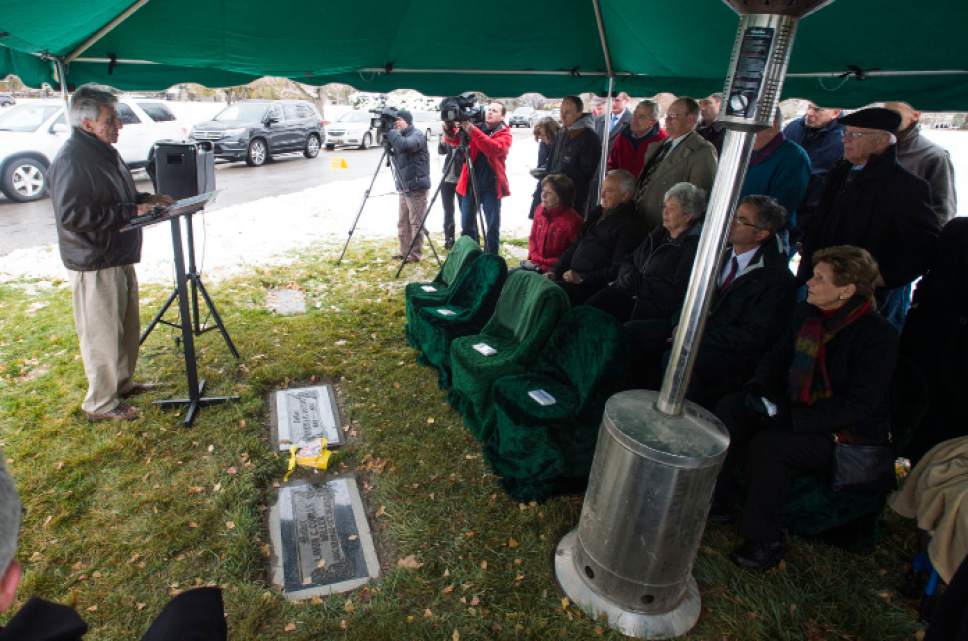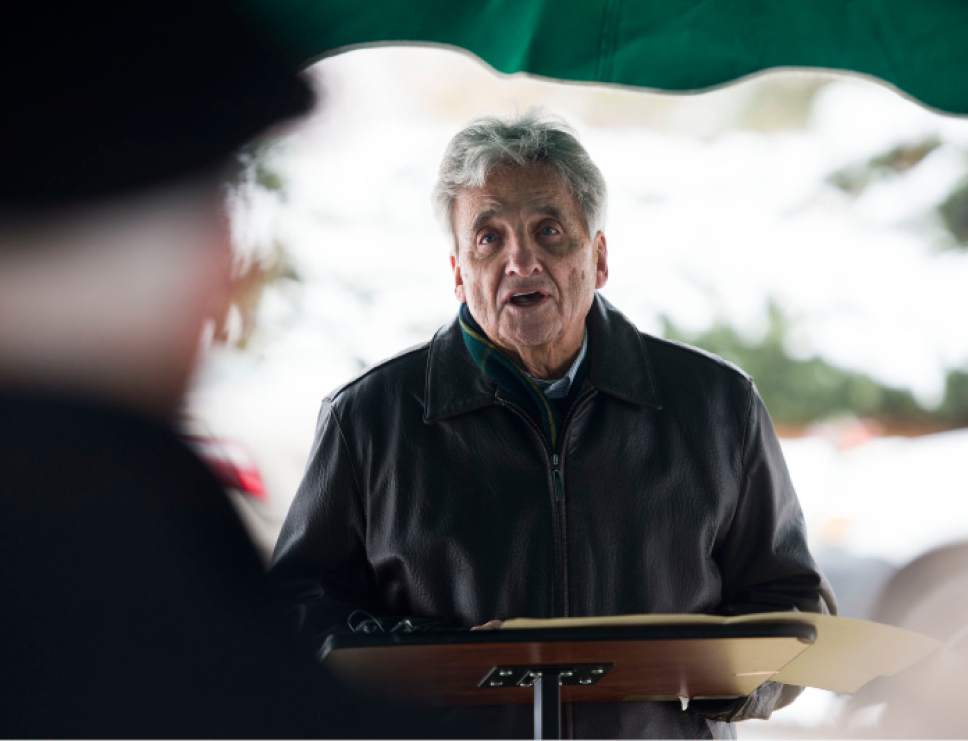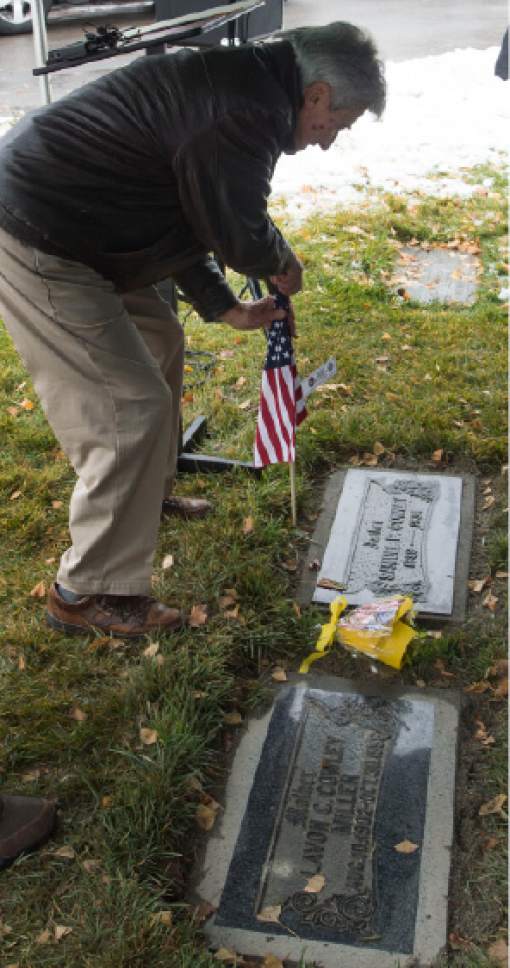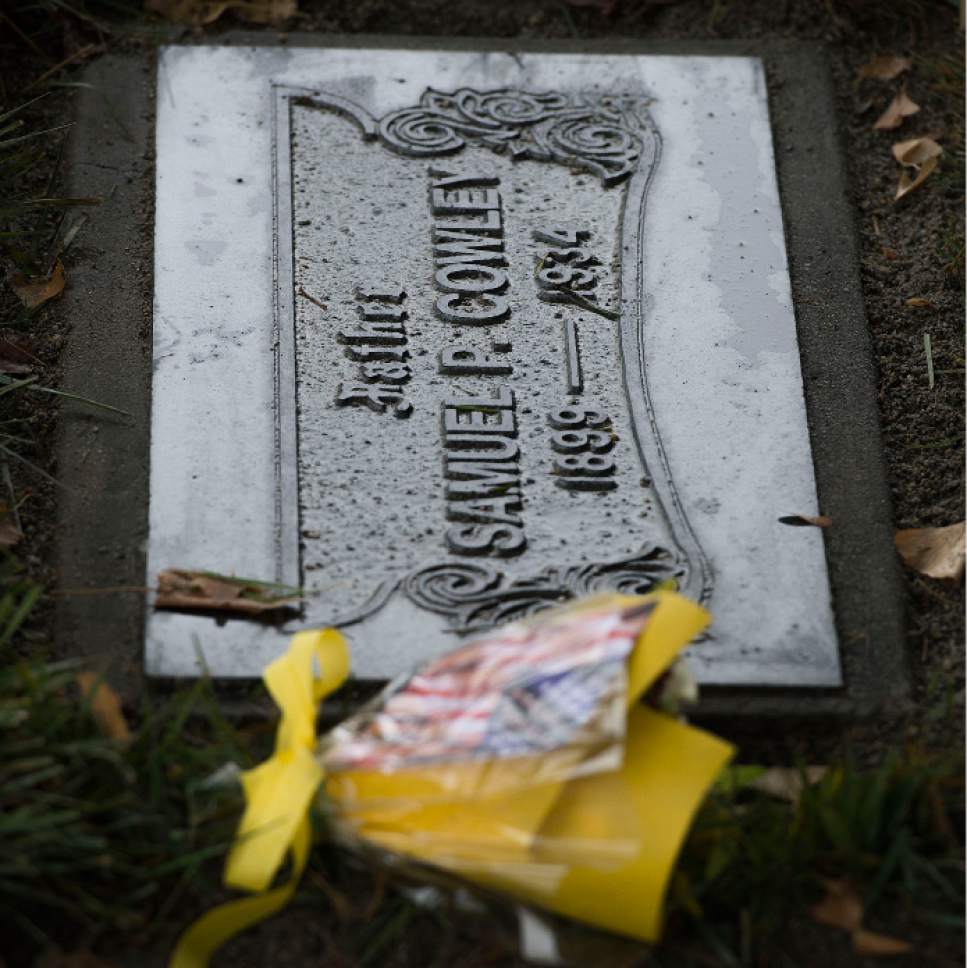This is an archived article that was published on sltrib.com in 2016, and information in the article may be outdated. It is provided only for personal research purposes and may not be reprinted.
Assigned to search for notorious bank robber George Baby Face Nelson, FBI Special Agent Samuel P. Cowley rushed out of the bureau's Chicago office on Nov. 27, 1934, after getting word that the gangster had been spotted driving a stolen car.
Cowley and fellow agent Herman Hollis ended up in a shootout with Nelson that would take the lawmen's lives.
On Monday, the Utah chapter of the Society of Former Special Agents of the FBI recognized Cowley's sacrifice with a memorial service at his grave in Wasatch Lawn Memorial Park in Salt Lake City. The late lawman's son, 82-year-old Samuel P. Cowley Jr., placed on his father's grave a small American flag.
Society member David Barker said that Cowley and other agents who lost their lives in the line of duty were "service martyrs." Dan Ward, president of the society's Utah chapter, which is called the Ex-Agents Association, said Cowley's work helped shut down the illicit industries of interstate bank robbery and kidnapping.
Cowley, 35, who was born in Franklin, Idaho, was the son of Matthias F. Cowley, an apostle of The Church of Jesus Christ of Latter-day Saints. Samuel Cowley served a four-year LDS mission in Hawaii and earned degrees from the Agricultural College of Utah, now Utah State University, in Logan and George Washington University's law school in Washington, D.C. He joined the FBI in 1929 and was promoted to inspector in 1934.
The late agent's son said FBI Director J. Edgar Hoover sent Cowley to Chicago to lead the hunt for infamous gangster John Dillinger. After Dillinger was killed in a shootout, Nelson — whose real name was Lester Joseph Gillis and who was part of Dillinger's gang — became public enemy No. 1, Cowley Jr. said.
An FBI account of Cowley's death says two agents spotted Nelson driving a stolen car near Barrington, Ill. Also in the car, according to the bureau, were Nelson's wife, Helen Gillis, and an associate, John Paul Chase.
Nelson got behind the agents' car, and Chase fired five rounds from an automatic rifle into their vehicle, the account says. One agent returned fire, and a shot pierced the radiator of Nelson's car, partially disabling it.
As Cowley and Hollis approached the scene in their car, the FBI says, Nelson and Chase opened fire. Hollis suffered massive head wounds in the four- to five-minute gunbattle and was pronounced dead on arrival at a hospital; Cowley died the next morning after surgery for stomach wounds.
Nelson, Gillis and Chase fled in Cowley's car, the FBI account says. Nelson had been hit nine times and died that evening; his body was discovered the next day near a Niles Center, Ill., cemetery.
Chase was caught about a month after the shooting, convicted of murder and sentenced to life in prison. He was paroled in 1966 and died in 1973.
Cowley Jr., a retired lawyer who was 8 months old in November 1934, said he learned about his father from his mother, other relatives and FBI agents.
Hoover allegedly said Cowley was courageous and honest, Cowley Jr. said.
Proof of his father's character also came from a man who rushed over to help at the shooting site, Cowley Jr. said.
That man later sent a letter to Cowley Jr.'s mother, Lavon Cowley, that said the agent's first words after the gunbattle were, "Did they get Hollis? If so, help him, forget me."
Cowley lay in state at the Capitol rotunda in Salt Lake City, and his funeral was held in the Assembly Hall on Temple Square. Lavon Cowley died in 1999 and is buried next to her husband.
Twitter: @PamelaMansonSLC


